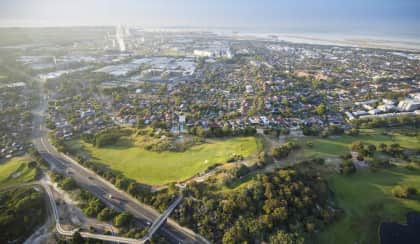Sydney dominates list of biggest money-making suburbs

A new report from PropTrack revealed the top 10 suburbs across the country where property sellers recorded profits of $1 million or more from March to July.
Sydney was home to the biggest money-making property sales, as NSW suburbs dominated the list with nine entries.
Seaforth fronted the elite list, with properties in the northern beaches suburb selling for a median profit of $1,540,000 in the four months leading up to July. Across all properties in the suburb sold during the period, the average holding time stood at 6.1 years.
Double Bay closely followed Seaforth, as property sellers in the harbourside suburb pocketed an average profit of $1,495,000 during the same period. The median holding period for properties in Double Bay before they were sold was 6.2 years.
The only suburb to enter the list that was located outside NSW’s border was Melbourne’s Mornington Peninsula, which boasted a median profit of $1,407,500 and had an average holding time of 6.6 years.
Other Sydney suburbs to make the list were Hunters Hill ($1,390,000), West Pennant Hills ($1,329,900), Pymble ($1,260,000), Woollahra ($1,232,500), North Bondi ($1,224,000), Avalon Beach ($1,130,000), and Belrose ($1,100,000). The average holding time for the Sydney suburbs ranged from the shortest period of 5.4 years to the longest period of 8.1 years.
The report comes as national property prices have declined in step with the Reserve Bank’s monetary policy tightening, which was kicked off in May.
In a move to reign in surging inflation, the central bank doled out four consecutive rate hikes from May to August, which saw the official cash rate in the country rise from a record low of 0.35 per cent to currently stand at 1.85 per cent.
While market conditions were observed to be softening ahead of the rate hikes, most experts are in agreement that the continued change in cash rate served as a major circuit breaker to property value growth across the country.
CoreLogic’s national value index entered the negative territory in May with a 0.3 per cent decline on a monthly basis and has posted steeper declines in the following months. By July, the combined capitals’ index was down by 1.3 per cent.
But despite cooling market conditions, PropTrack highlighted that some home owners made the strategic choice to sell properties when prices were still near their peak — resulting in hefty profits.

